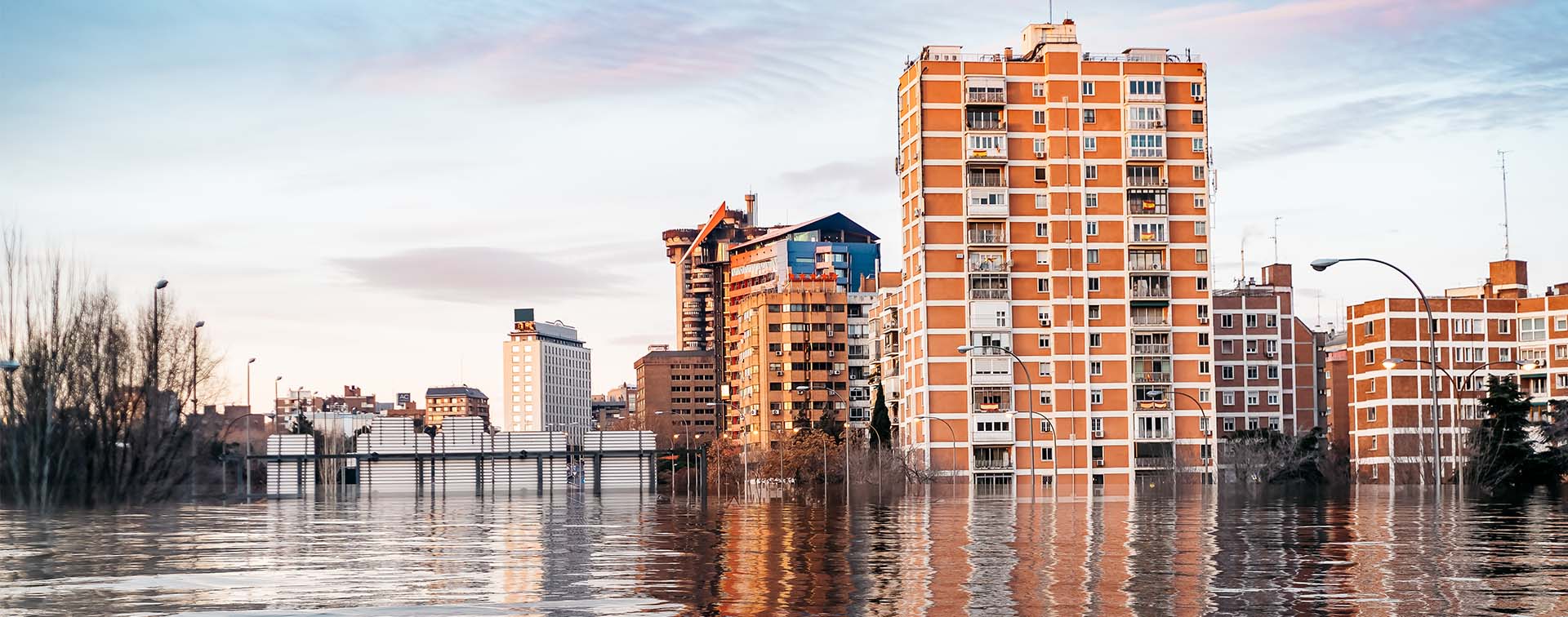
Prof. Dr. Khalid Koser is Executive Director of the Global Community Engagement and Resilience Fund (GCERF) and Member of the Governing Board of the Andan Foundation. He is currently Professor of Conflict, Peace, and Security at the University of Maastricht and chairs the Board of Trustees for Raleigh International.
The current Ukrainian refugee crisis is a stark reminder that conflict continues to displace people. However, most experts now agree that over the next 25 years the effects of climate change will become the key driver of displacement worldwide.
It is now incontrovertible that climate change is occurring, and most people accept that it is mainly a result of human activities. The latest reports of the authoritative Intergovernmental Panel on Climate Change (IPCC) conclude that global surface temperatures will continue to increase until at least 2050, and that global warming of at least 1.5˚C (34.7˚F) is now almost inevitable.

As a result of this increase, extreme weather events are becoming more frequent and severe, leaving 40% of the world’s population ‘highly vulnerable’ to climate catastrophes. The risks are highest in the Global South, including parts of Africa, Central and South America, and South Asia. The IPCC estimates that between 2010 and 2020, up to 15 times more people died from floods, droughts, and storms in these very vulnerable regions than in other parts of the world.
The relationship between extreme climate events and the movement of people is complex, and it is important to safeguard against assumptions. For example, it is an assumption that millions of Africans will be heading to Europe soon because of climate change. The nature of each climate event matters. People have little option but to leave their homes during torrential floods. By contrast, it is possible to stay and adapt in the face of gradually rising sea levels or desertification. People will move in different ways: some temporarily and others permanently, some locally and others across borders.
It is not often easy to discern specific motivations for migration. For example, one effect of climate change will be natural resource scarcity, which in turn may drive competition and conflict. In this case, a mix of economic, environmental, and political factors may cause people to move.
Experts now converge on several predictions. First, hundreds of millions of people will likely leave their homes as a result of the effects of climate change, within the next 25 years or so. Second, the majority of those displaced will be in the Global South. Third, most of the people in this region will move inside their own countries, with few crossing international borders, and fewer still traveling long distances. Fourth, significant legal, normative, and institutional gaps need to be filled quickly to protect and assist these climate migrants. Fifth, climate migration will provoke serious human rights and national security consequences.
The IPCC advocates for immediate, massive, and global efforts to reduce emissions and mitigate the starkest predictions of climate change. We can all play our part by accepting more personal responsibility for our carbon footprints. We can all make a difference on climate migration by seeking to understand, not assume. Understand the complexity. Make policy in advance, not retroactively. Be bold. Be kind.
The Andan Foundation, where I am a board member, supports migrant- and refugee-led projects worldwide, recognizing their potential to change our world for the better. Our long-term goal is to establish a refugee city, where people who have no option but to move can still realize their potential and prosper. Expect them to be at the forefront of climate action.